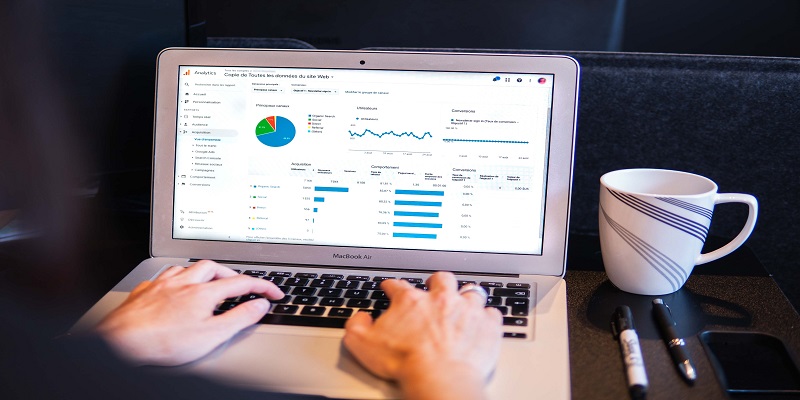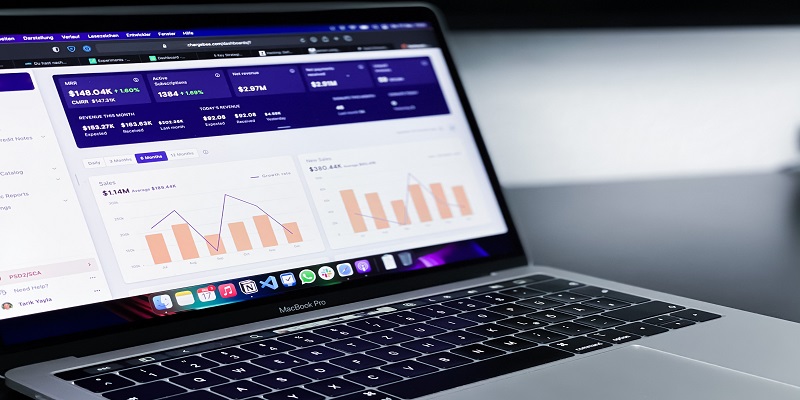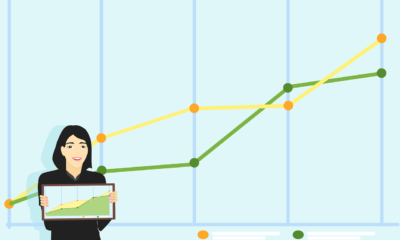Digital Marketing
Data Analytics and Blogging: Leveraging the Power of Data for Success

In the digital era, data has emerged as the new currency. Every online interaction and behavior leaves behind valuable information that can be utilized to drive success. But did you know that data analytics can revolutionize your journey as a blogger? By embracing the power of data, bloggers like yourself can unlock a wealth of insights that will propel your success to new heights.
In this blog post, we will explore the world of data analytics and discover how it empowers you to create compelling content, gain a deeper understanding of your audience, and ultimately elevate your blogging game. Get ready for an exciting adventure where numbers come to life and transformations are just a few clicks away!
Introduction to Data Analytics
In today’s competitive landscape, businesses need to tap into the power of data to stay ahead. This is where data analytics comes into play. Data analytics involves transforming raw data into actionable insights that drive decision-making.
There are numerous benefits to harnessing the power of data analytics. One of the most significant advantages is the ability to understand customers better. By analyzing customer data, businesses gain valuable insights into customer behavior and preferences. This allows them to tailor their products and services to better meet customer needs.
Data analytics also helps businesses enhance operational efficiency. By understanding how their processes work and identifying bottlenecks, businesses can make changes to operate more smoothly and cost-effectively.
Although data analytics presents some challenges, such as oversimplification and resource investment, it remains a powerful tool for gaining a competitive edge. Now is the time to embrace data and unlock its potential for success!
Utilizing Data Analytics for Blogging Success
As a blogger, you’re constantly seeking ways to improve your content and expand your audience. Data analytics can be a game-changer in achieving these goals. By understanding your data, you can identify patterns and trends in your readership, gain insights into popular and shareable content, optimize your social media strategy, and track your progress over time.
Data analytics helps you in the following ways:
- Understanding Your Readers: Analyzing data provides insights into your readers’ demographics, interests, and content preferences. This information enables you to shape future blog posts and target specific readers with tailored content.
- Creating Shareable Content: Shareability is crucial for driving traffic to your blog. Data analytics helps identify which content types are shared the most and why. This knowledge allows you to create more shareable content in the future.
- Fine-Tuning Your Social Media Strategy: By analyzing data, you can determine which social media channels drive the most traffic to your blog. This information empowers you to optimize your social media strategy accordingly.
- Tracking Your Progress: Regularly monitoring data allows you to track the effectiveness of your strategies and make adjustments as needed to meet your goals.
Stages of Data Analytics for Successful Blogging Strategies
Implementing data analytics effectively involves several stages for successful blogging strategies. Here’s an overview:
- Data Collection: Collect data from various sources, such as website traffic, social media interactions, and email subscribers. This data forms the foundation for analysis.
- Data Analysis: Analyze the collected data to understand what content resonates with your audience. Identify popular topics and content types that generate engagement.
- Content Optimization: Utilize the analyzed data to create better content. Develop blog posts that align with your audience’s preferences and provide value. Optimize headlines and employ search engine optimization (SEO) techniques to increase discoverability.
- Performance Tracking: Continuously monitor your results after implementing changes based on the data. Assess your progress, make adjustments as needed, and align your performance with your goals.

How to Leverage Data Analytics to Monitor and Improve Your Blogging Performance
Utilizing data analytics can provide valuable insights into your blog’s performance and enable you to enhance your content strategy. By tracking reader engagement, you can identify topics that resonate with your audience and those that fall short. Data analytics also allows you to analyze your writing style, optimize your workflow, and measure the impact of your marketing efforts.
To begin, it’s essential to set up Google Analytics on your website and configure it to track reader engagement. Once implemented, you can start exploring the data to uncover valuable insights. Here are key metrics to focus on:
- Bounce rate: This indicates the percentage of visitors who leave your site after viewing only one page. A high bounce rate suggests that visitors are not finding what they’re looking for.
- Time on page: This metric measures the amount of time visitors spend reading a specific page. For long-form content, it’s important to ensure that readers are engaged and not just skimming through.
- Pageviews: This metric reveals how many times a particular page on your site has been viewed. Significant fluctuations in pageviews could indicate viral content or areas that require closer examination.
- Comments: Keeping track of the number of comments each post receives is crucial. Engaging content typically generates more discussion than less captivating material.
Collecting Data: Tools and Techniques
Several tools and techniques are available for data collection, each suited to different situations and data types. Common methods include surveys, interviews, focus groups, observations, and document analysis.
- Surveys: Effective for collecting quantitative data from a large number of people, surveys can be administered in person, by mail, or online.
- Interviews: Qualitative in nature, interviews involve one-on-one conversations to gain insights and perspectives from individuals.
- Focus groups: Similar to interviews but conducted with small groups, focus groups offer insights from multiple participants in a less time-consuming manner.
- Observations: Observing people or events provides valuable data on behavior and actions.
- Document analysis: Collecting quantitative or qualitative data from written documents can yield useful information.
Selecting the appropriate tool depends on the specific goals of your data collection. Surveys are efficient for gathering a large amount of data quickly, while interviews provide in-depth insights at the cost of time and resources. Focus groups strike a balance, and observations offer unique insights into behavior.
Best Practices for Maximizing ROI with Data Analytics
Data analytics can help bloggers maximize their return on investment (ROI) by identifying popular blog posts, engaging topics, and conversion opportunities. Key analytics platforms like Google Analytics and Kissmetrics can track relevant data. It’s crucial to select the right platform and ensure the correct data is being tracked. Key metrics to monitor include page views, unique visitors, time on site, bounce rate, and conversions.
Once you have the appropriate platform and data tracking in place, analyze the collected data to identify trends and patterns. This valuable information can guide the creation of more targeted and effective content. For instance, if a particular blog post consistently drives traffic and conversions, focus on creating similar articles. Conversely, if certain topics generate engagement but lack conversions, consider shifting your focus.
By leveraging data analytics to understand your audience and the types of content that resonate, you can significantly increase your blogging ROI.
Conclusion
Combining data analytics with blogging empowers you to improve the quality and reach of your blog posts. By effectively collecting, analyzing, and utilizing data, bloggers can provide better insights to their readers and optimize their blog’s growth. While valuable content is crucial for online success, understanding how to leverage data through datafication can make a significant difference in achieving your goals. By following these stages, you can develop blogging strategies that attract more readers and fuel your growth.































